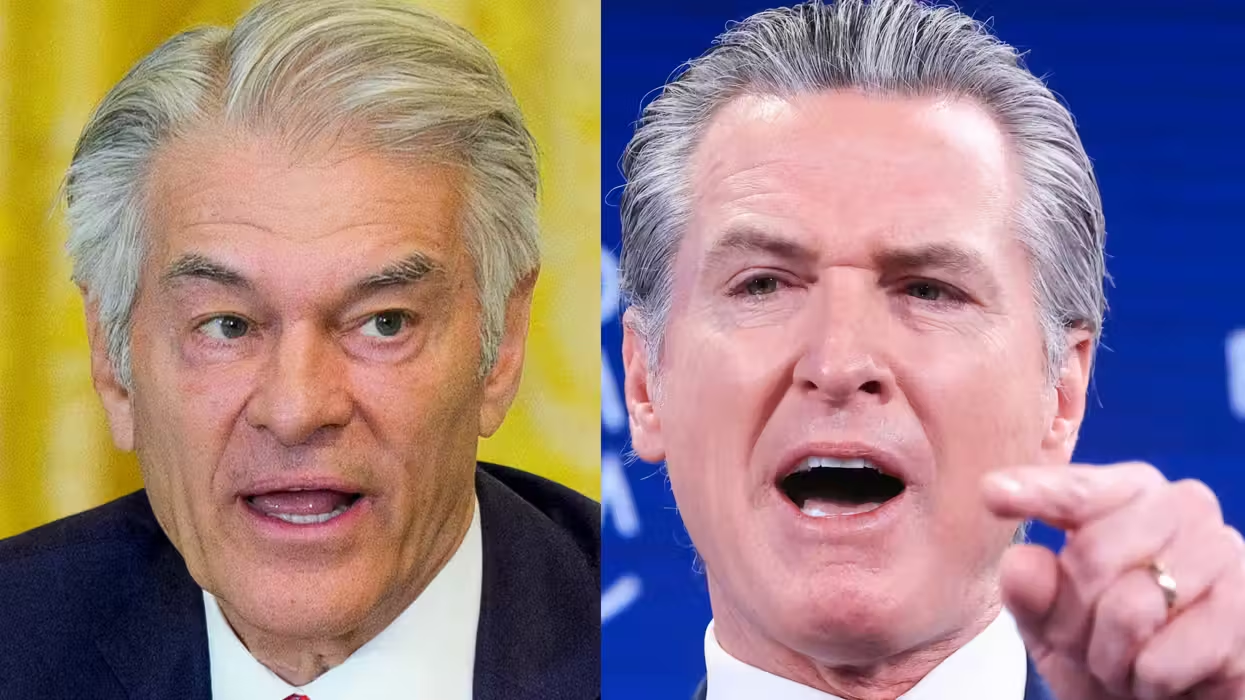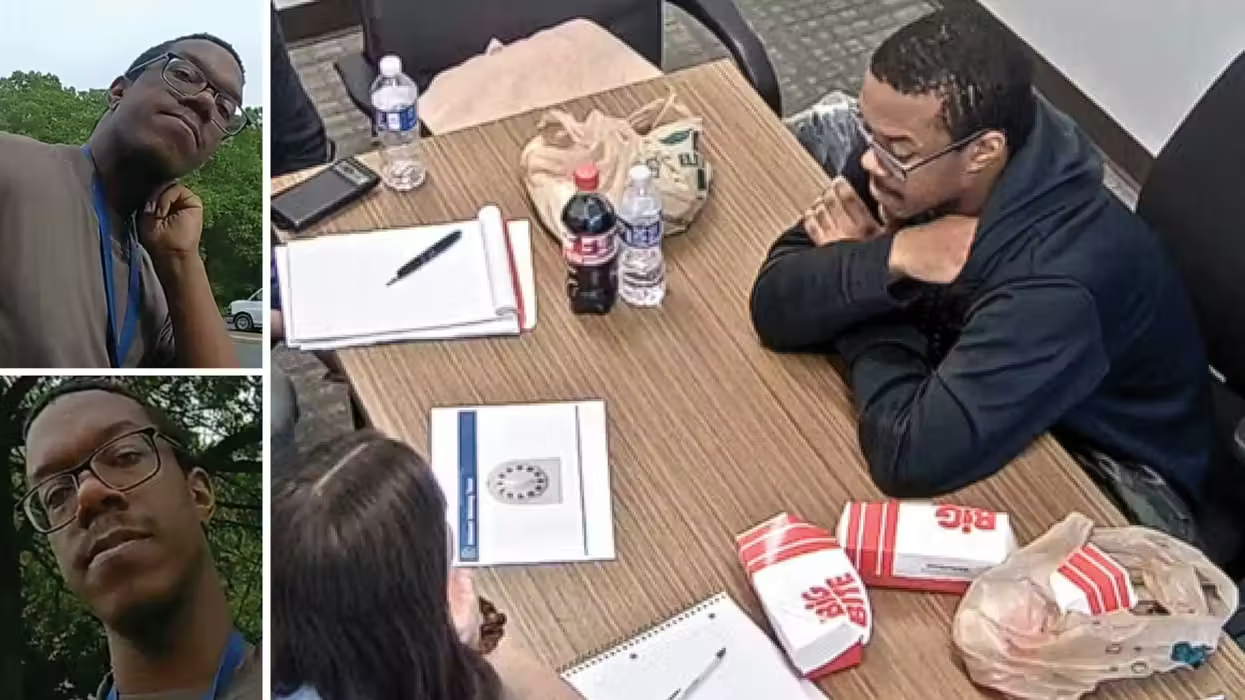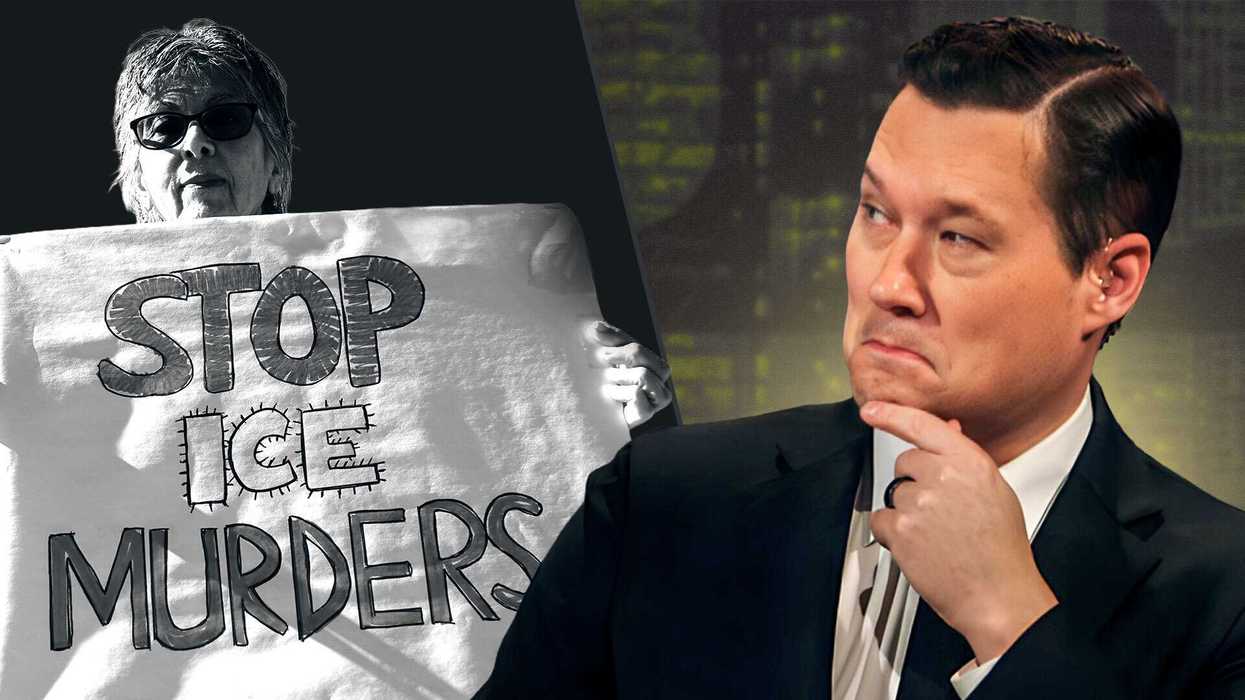The Supreme Court has ruled that same-sex couples have the right to get married anywhere in the United States.
The 5-4 opinion means that the 14 states that still have same-sex marriage bans on the books may no longer enforce them. Thirty-six states plus the District of Columbia had already legalized gay marriage.
 Same-sex marriage supporters rejoice after the Supreme Court handed down the ruling that all couples have the right to marry in all 50 states. (Alex Wong/Getty Images)
Same-sex marriage supporters rejoice after the Supreme Court handed down the ruling that all couples have the right to marry in all 50 states. (Alex Wong/Getty Images)
"No union is more profound than marriage, for it embodies the highest ideals of love, fidelity, devotion, sacrifice and family," Justice Anthony Kennedy wrote.
Kennedy, who has written the last three of the court's major gay rights rulings, said the 14th Amendment "requires a state to license a marriage between two people of the same sex and to recognize a marriage between two people of the same sex when their marriage was lawfully licensed and performed out of state."
Kennedy wrote for liberal justices Ruth Bader Ginsburg, Stephen Breyer, Sonia Sotomayor and Elena Kagan. Chief Justice John Roberts and Justices Antonin Scalia, Clarence Thomas and Samuel Alito dissented.
"In forming a marital union, two people become something greater than once they were," Kennedy wrote. "As some of the petitioners in these cases demonstrate, marriage embodies a love that may endure even past death. It would misunderstand these men and women to say they disrespect the idea of marriage. Their plea is that they do respect it, respect it so deeply that they seek to find its fulfillment for themselves. Their hope is not to be condemned to live in loneliness, excluded from one of civilization's oldest institutions. They ask for equal dignity in the eyes of the law. The Constitution grants them that right."
The chief justice, writing the principal dissent, said the decision has "nothing to do with" the Constitution.
"If you are among the many Americans — of whatever sexual orientation — who favor expanding same-sex marriage, by all means celebrate today's decision," Roberts wrote. "Celebrate the achievement of a desired goal. Celebrate the opportunity for a new expression of commitment to a partner. Celebrate the availability of new benefits. But do not celebrate the Constitution. It had nothing to do with it."
Massive cheers and shouts of joy went up outside the Supreme Court as word of the decision came down. The Gay Men's Chorus of Washington launched into the national anthem.
President Barack Obama reacted moments after the decision was announced with a post on Twitter: "Today is a big step in our march toward equality. Gay and lesbian couples now have the right to marry, just like anyone else."
Speaking in the White House Rose Garden, he declared the ruling "a victory for America."
Obama described the often slow march for progress, then said that "sometimes there are days when that slow steady effort is rewarded with justice that arrives like a thunderbolt."
Jim Obergefell, who was the lead plaintiff in the case after his home state of Ohio refused to recognize him as the widower of his late partner, said outside the court that the ruling "affirms what millions across this country know to be true in our hearts."
"Our love is equal. That the four words etched in the Supreme Court, 'equal justice under law' apply to us too," Obergefell said.
Reaction also poured in from the 2016 campaign trail, including from Wisconsin Gov. Scott Walker — not yet a declared Republican candidate — who called for a constitutional amendment to put the matter back into the hands of the states.
Republican National Committee Chairman Reince Priebus said the court "failed to recognize the states’ constitutional role in setting marriage policy, instead finding a federal role where there is none. In doing so, they have taken power away from the states and from the people to settle the relevant issues for themselves."
Priebus emphasized the GOP's belief "in the importance of traditional marriage between a man and a woman and [we] remain committed to finding common ground to champion the family’s role in society."
 Supporters of same-sex marriage rally in front of the Supreme Court awaiting a ruling to legalize gay marriage nationwide, June, 25, 2015 in Washington. (Bill O'Leary/The Washington Post via Getty Images)
Supporters of same-sex marriage rally in front of the Supreme Court awaiting a ruling to legalize gay marriage nationwide, June, 25, 2015 in Washington. (Bill O'Leary/The Washington Post via Getty Images)
The ruling will not take effect immediately because the court gives the losing side roughly three weeks to ask for reconsideration. But some state officials and county clerks might decide there is little risk in issuing marriage licenses to same-sex couples.
The cases before the court involved laws from Kentucky, Michigan, Ohio and Tennessee that define marriage as the union of a man and a woman. Those states have not allowed same-sex couples to marry within their borders and they also have refused to recognize valid marriages from elsewhere.
Just two years ago, the Supreme Court struck down part of the federal anti-gay marriage law that denied a range of government benefits to legally married same-sex couples. Kennedy again formed the majority with Ginsburg, Breyer, Sotomayor and Kagan.
The earlier decision in United States v. Windsor did not address the validity of state marriage bans, but courts across the country, with few exceptions, said its logic compelled them to invalidate state laws that prohibited gay and lesbian couples from marrying.
The number of states allowing same-sex marriage has grown rapidly. As recently as last October, just over one-third of the states permitted it.
There are an estimated 390,000 married same-sex couples in the United States, according to UCLA's Williams Institute, which tracks the demographics of gay and lesbian Americans. Another 70,000 couples living in states that do not currently permit them to wed would get married in the next three years, the institute says. Roughly 1 million same-sex couples, married and unmarried, live together in the United States, the institute says.
The Obama administration backed the right of same-sex couples to marry. The Justice Department's decision to stop defending the federal anti-marriage law in 2011 was an important moment for gay rights, and Obama declared his support for same-sex marriage in 2012.
The states affected by Friday's ruling are: Alabama, Arkansas, Georgia, Kentucky, Louisiana, Michigan, Mississippi, most of Missouri, Nebraska, North Dakota, Ohio, South Dakota, Tennessee and Texas.
The Associated Press contributed to this report.

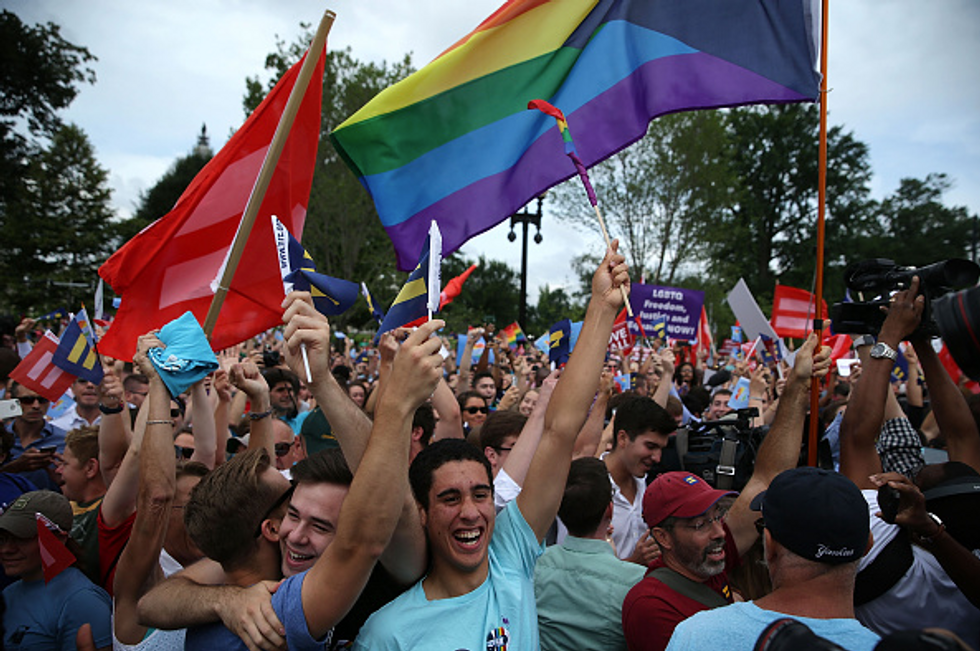 Same-sex marriage supporters rejoice after the Supreme Court handed down the ruling that all couples have the right to marry in all 50 states. (Alex Wong/Getty Images)
Same-sex marriage supporters rejoice after the Supreme Court handed down the ruling that all couples have the right to marry in all 50 states. (Alex Wong/Getty Images)
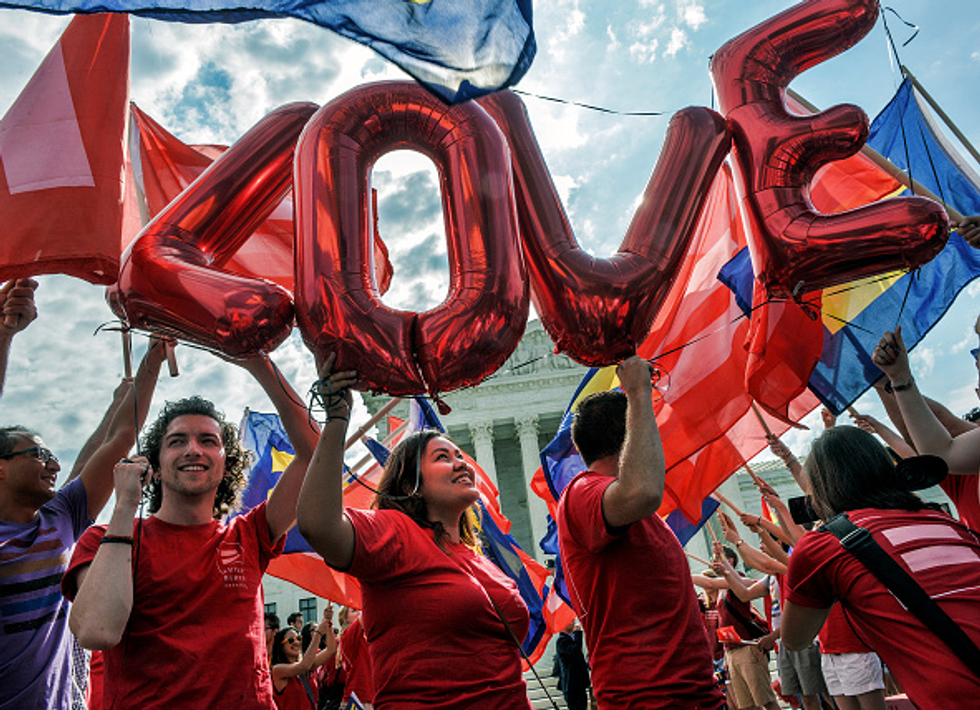 Supporters of same-sex marriage rally in front of the Supreme Court awaiting a ruling to legalize gay marriage nationwide, June, 25, 2015 in Washington. (Bill O'Leary/The Washington Post via Getty Images)
Supporters of same-sex marriage rally in front of the Supreme Court awaiting a ruling to legalize gay marriage nationwide, June, 25, 2015 in Washington. (Bill O'Leary/The Washington Post via Getty Images)

